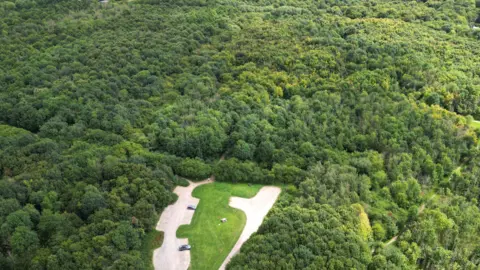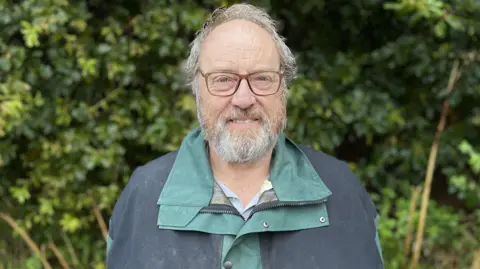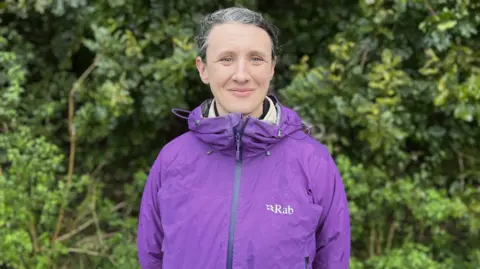Community forest helping connect people for 30 years
 Swindon Borough Council
Swindon Borough CouncilThe Great Western Community Forest (GWCF) is celebrating its 30th year after it was originally founded in 1994.
GWCF covers an area of 39,000 hectares (more than 168 square miles) stretching from the North Wessex Downs Area of Outstanding Natural Beauty to the River Thames.
Community forests are spread across a mix of community woodland, private woodland, on-street, urban woodland, wooded habitat corridors and hedgerows.
The aim of the forest is to connect communities to green spaces, promote biodiversity, improve flood defences and reach 30% tree cover across the GWCF area.

The Wiltshire Wildlife Trust (WWT) works in partnership with Parish Councils and Swindon Borough Council on the GWCF project.
With more than two decades of experience working with the WWT, Neil Pullen has watched the forest grow.
"Places like Shaw Forest Park, Nightingale Wood, Blackhorse Farm on the edge of Wroughton" are among the 37 separate woodland sites that are connected by green and river corridors to make up the forest," he said.
"It's had this amazing community involvement, I meet so many people in Swindon who say 'I can remember planting the first few trees up on Shaw Forest Park' or 'I went to Mouldon Hill with the Rotary Club and planted trees'.
"People remember this, people grow up remembering being brought by their parents to plant a few trees."

Councillor Emma Bushell from Swindon Borough Council said "connecting people and communities to the forest" is key alongside creating biodiversity.
"It's (biodiversity) one of the key things we (Swindon Borough Council) want to promote.
"It's that mix of trees of different ages, hedgerows, meadows, encouraging wildlife with the advantage of trees being they withdraw carbon from the environment" Councillor Bushell continued.
'Prevent flooding'
Between 2020 to 2023, 35 hectares of woodland (more than 40,000 trees) has been planted across the GWCF.
This has increased carbon sequestration capacity by around 431 tonnes of CO2 annually.
More than 30% of the trees planted are in areas that also support natural flood management.
Speaking at Nightingale Wood, Councillor Bushell said: "This area was former agricultural land prone to flooding.
"Having the forest here helps prevent flooding as well as promoting biodiversity."
Across the next two years more than 10,000 trees are being planted at three of the Country Parks included in GWCF (Mouldon Hill, Coate and Stanton) and at Shaw Forest Park.
Follow BBC Wiltshire on Facebook, X and Instagram. Send your story ideas to us on email or via WhatsApp on 0800 313 4630.
